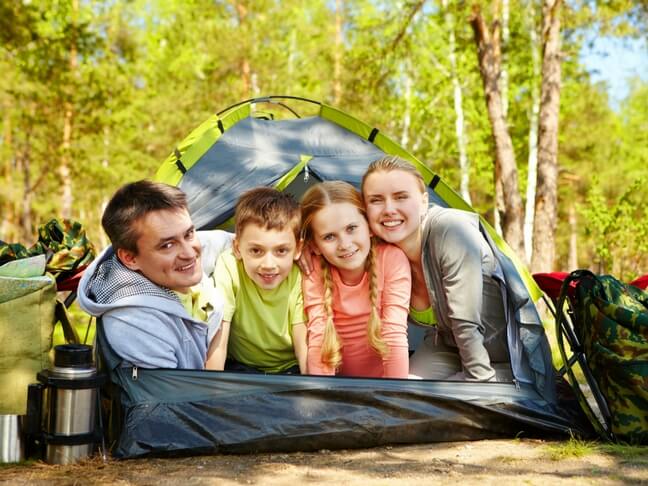The anticipation of a first camping trip can be a mix of excitement and curiosity for both parents and their children. The great outdoors offers a canvas for creating lasting memories, fostering a connection with nature, and instilling a sense of independence in young minds. That said, you also want to ensure a successful and enjoyable first camping experience for your child. To do so, careful preparation is key.
So, we have outlined nine practical tips and considerations below that you can implement to make the adventure a positive and memorable experience for your young one, whether they are a teen or adolescent.
1. Lay the Foundation
Before the camping trip, introduce the concept of camping to your child. Share stories about your own camping experiences, show pictures, and explain what to expect. This will help build excitement and familiarity with the idea of spending a night in nature. Answer any questions they may have and emphasize the fun aspects of camping, such as roasting marshmallows, stargazing, and exploring the outdoors.
2. Gear Up Together
Involve your child in selecting and packing their gear, emphasizing the importance of being prepared. Let them choose a few small items, like a favorite toy or a cozy blanket, to bring along for comfort. Aside from helping them feel more in control, this also ensures they have familiar items to make the camping experience feel like an adventure, not a challenge.
3. Cultivate Excitement
To ignite and sustain your child’s enthusiasm for the camping experience, promise them a small camping-related gift as a reward for their adventurous spirit. Something they could hold on to that will embody the essence of the camping adventure and stimulate them. Thankfully, there are gifts under £100 you could give your child that would ignite their excitement, such as a nature-themed t-shirt, a hat, or a special outdoor activity kit.
The anticipation of receiving a tangible memento can serve as a powerful motivator and add an element of fun while also creating a positive association with the camping experience. Whether you decide to give it to your child before or after the adventure, the choice is yours.
4. Practice Makes Perfect: Set Up a Backyard Campsite
To familiarize your child with the camping environment, consider setting up a backyard campsite before the actual trip. Pitch the tent together, arrange sleeping bags, and spend an evening under the stars. This “practice run” allows your child to get comfortable with the camping gear and sleep in a tent while having the security of home nearby.
5. Discuss Camping Safety Rules
Before heading out, discuss camping safety rules with your child. Teach them about the importance of staying close to the campsite, identifying and avoiding potential hazards, and respecting nature. Ensure they know basic safety measures, such as what to do if they get lost and how to behave around wildlife. This is important, and you don’t want to leave it out.
This is also an opportunity to teach your child basic survival skills. This knowledge will not only keep them safe but also empower them to enjoy the camping experience with confidence.
6. Turn Learning into Adventures
Camping provides a unique opportunity to turn nature into a hands-on classroom. Engage your child in identifying different plants, birds, and insects. Bring along a nature guidebook and encourage them to ask questions. Create a simple scavenger hunt with items commonly found in the area, turning the camping trip into an educational adventure that sparks curiosity about the natural world.
7. Campfire Tales and Starry Nights: Create Magical Moments
One of the enchanting aspects of camping is the opportunity to share stories around a campfire and gaze at the stars. Pack a few age-appropriate books or create your own campfire tales. Use this time to connect, share experiences, and foster a love for storytelling. The magic of a crackling fire and a clear night sky can create memories that last a lifetime.
8. Embrace the Unpredictable
Camping often comes with surprises, from unexpected weather changes to curious wildlife. Teach your child why they have to be flexible in life to adapt to different situations. Embrace the unpredictable nature of camping and use it as an opportunity to teach resilience and problem-solving skills. A positive attitude can turn unexpected challenges into valuable learning experiences.
9. Capture the Moments
Encourage your child to document their camping adventure through journaling or sketching. Provide them with a small notebook and colored pencils to capture their thoughts, observations, and drawings of the natural surroundings. In addition to enhancing their connection with the environment, it will also serve as a cherished keepsake of their first camping experience.
Conclusion
Camping is an opportunity to instill a love for nature, encourage curiosity, and create lasting family memories. When you involve your young one in the process, focusing on safety and embracing the wonders of the outdoors, you set the stage for a positive and enriching adventure that lays the foundation for a lifelong appreciation of the great outdoors.

